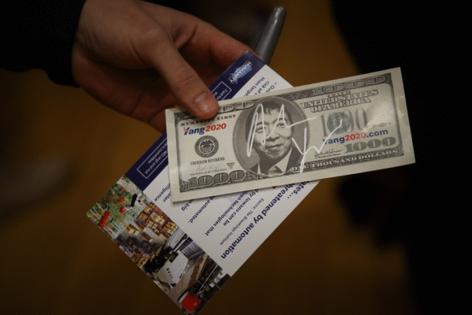Editorial: Universal basic income fails another test
Published in Op Eds
There’s a reason that ideas from the progressive ivory tower need to be tested. Often, the grandest theories fall apart when exposed to the rigors of the real world.
Consider the case of universal basic income, which is all the rage among many Democrats. The government would provide every individual with a monthly check. Proponents believe this would help people cover basic expenses, such as food and housing. This is supposed to reduce income “inequality” and better equip individuals to take financial risks, such as starting a business or taking a new job.
In 2022, the idea was floated in Reno as a way to combat high housing costs. In the 2020 presidential race, Andrew Yang made waves in the Democratic primary by pushing UBI. He claimed his proposal would “enable all Americans to pay their bills, educate themselves (and) start businesses.” In 2018, former President Barack Obama suggested considering “a universal income.”
As part of this push, there have been at least 150 UBI pilot programs around the country, although none in Nevada. Last November, a working paper from the National Bureau of Economic Research looked at a two-year program in Compton, California. Almost 700 households received around $500 a month for two years. Another 1,402 households were in the control group.
There was some moderately good news for UBI supporters. “Average non-housing debt balances declined by $2,190 over 18 months relative to the control group, although the drop is not statistically significant,” the paper found.
But even that isn’t particularly impressive. Over 18 months, those households would have received about $9,000. Not a good return on investment.
While full-time workers didn’t stop working when receiving the handout, part-time workers did. “Part-time workers (at baseline) had lower labor market participation by 13 percentage points. Income (excluding the transfer) was reduced by $333 per month on average relative to control households,” the paper said.
In other words, UBI enabled many recipients to work less. There is scant evidence of people using the money to educate themselves or start businesses. It’s more likely UBI will increase time spent on leisure activities such as playing video games than turn a recipient into an entrepreneur.
There’s a more fundamental problem with UBI. There is dignity in work. Components of a government safety net shouldn’t promote increased dependency. The goal should be to help the less fortunate, while providing incentives for them to become self-sufficient. A universal basic income does the opposite. It’s a bad idea.
_____
©2025 Las Vegas Review-Journal. Visit reviewjournal.com.. Distributed by Tribune Content Agency, LLC.




























































Comments